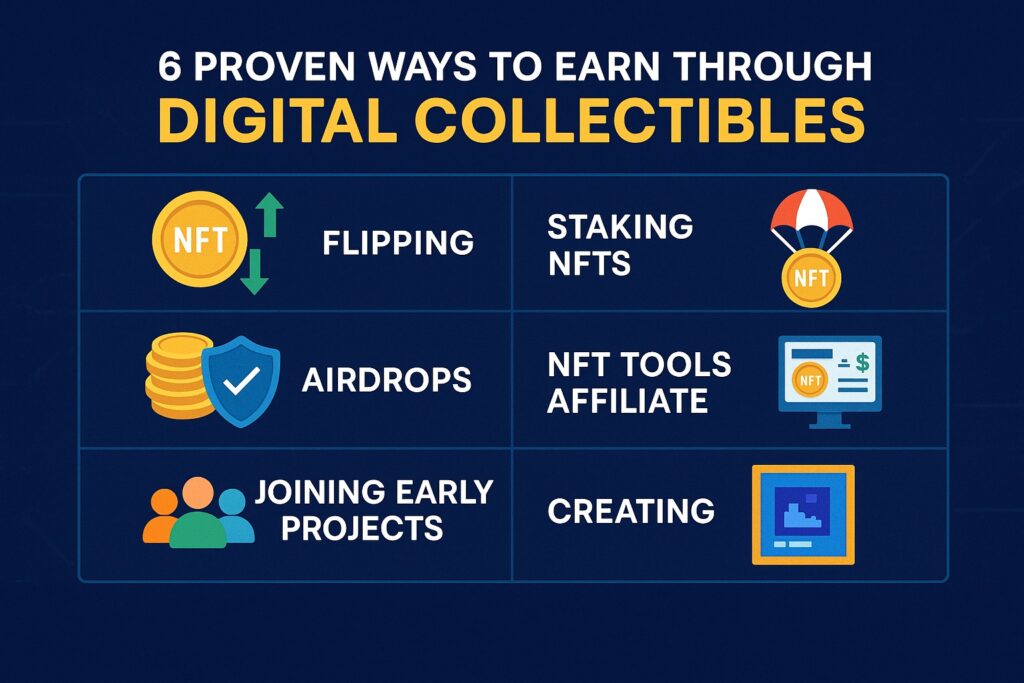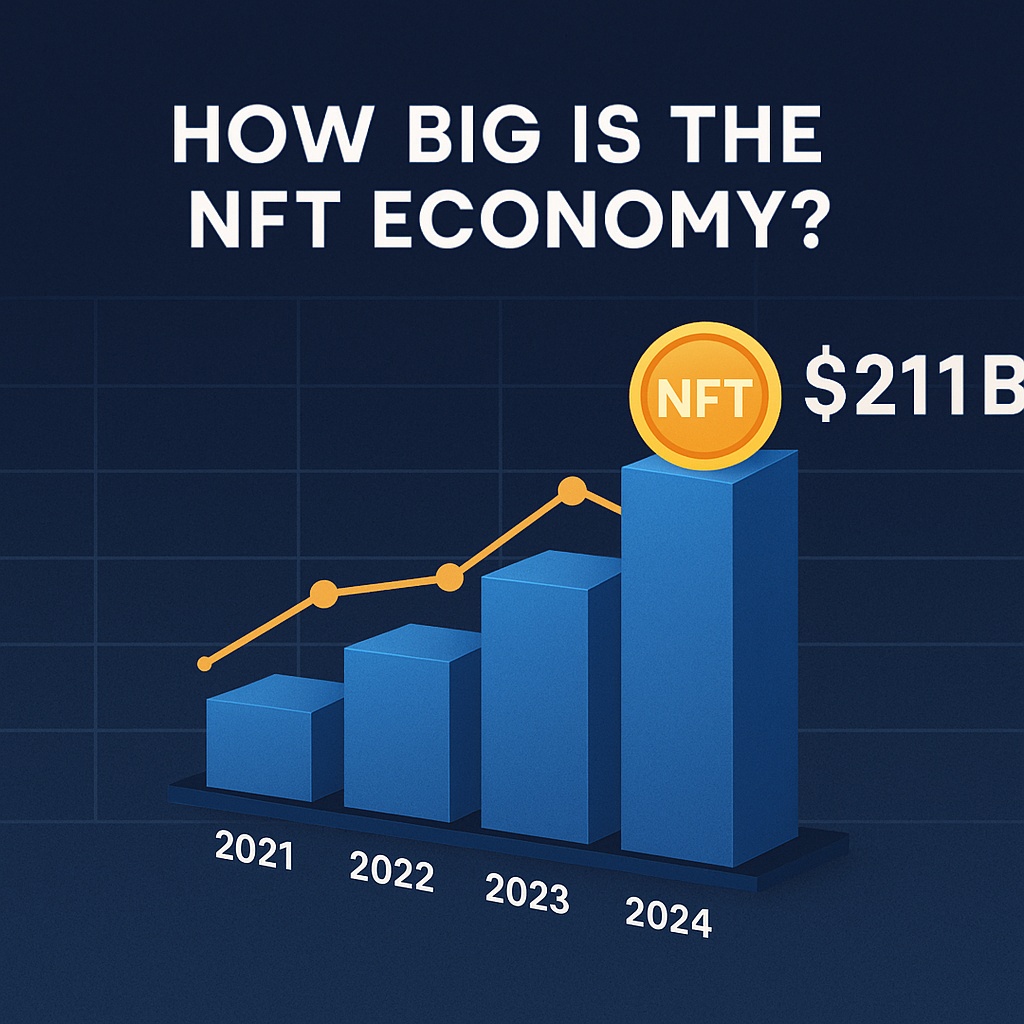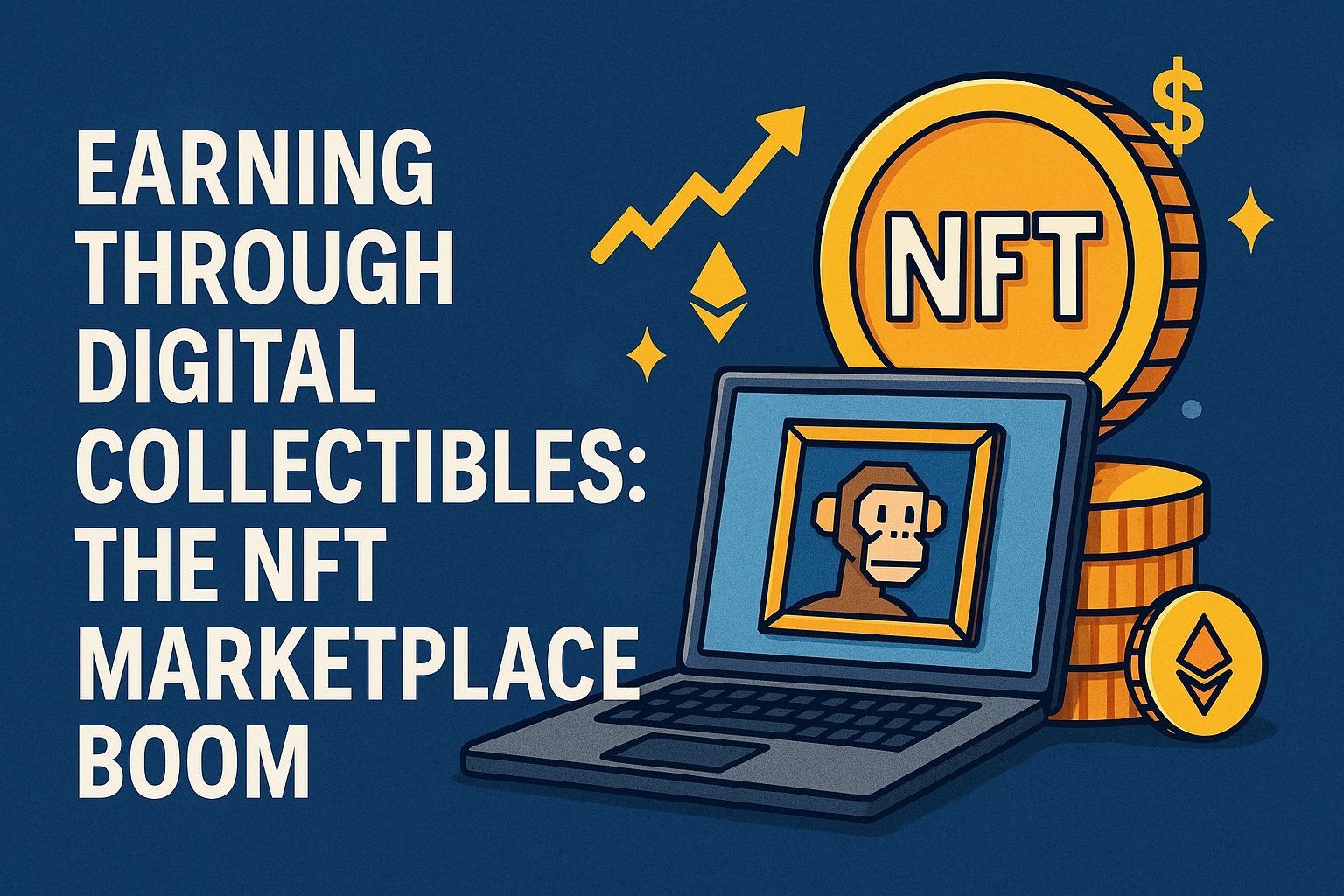Digital collectibles have transformed from a niche curiosity into a multi-billion dollar industry. At the center of this transformation are NFTs, or non-fungible tokens — unique, verifiable assets on the blockchain that represent ownership of digital goods. This article explores how people are earning online through NFTs, what platforms to use, what risks to avoid, and real-world examples that prove this space isn’t just hype — it’s a new frontier in online income.
What Are NFTs and Why Do They Matter?
NFTs represent unique digital assets verified by blockchain technology. They can represent art, music, video clips, tweets, virtual real estate, or in-game items. Unlike cryptocurrencies like Bitcoin or Ethereum, NFTs aren’t interchangeable — each token is distinct, giving it collectible value.
Some reasons people value NFTs:
- Scarcity: Many NFTs have limited supply or are one-of-a-kind.
- Utility: NFTs often come with perks, access to communities, or in-game functions.
- Provenance: Ownership history is verifiable via blockchain.
- Culture: NFTs are status symbols in digital communities.
Top NFT Marketplaces for Earning
To earn from NFTs, you need to understand where the action happens. Here are the most popular marketplaces where NFTs are bought and sold:
- OpenSea – The largest general marketplace for Ethereum NFTs.
- Blur – Popular among NFT traders for its real-time data and bulk tools.
- Magic Eden – The go-to marketplace for Solana NFTs.
- Foundation – Ideal for high-end digital art and creators.
6 Proven Ways to Earn Through Digital Collectibles

1. Create and Sell NFTs
If you’re a digital artist, musician, photographer, or even meme-maker, NFTs let you tokenize your work and earn directly from fans. You can easily mint and sell NFTs on platforms such as OpenSea, Rarible, and Mintable. Many creators also earn royalties on every resale, thanks to smart contracts.
Building a loyal following on Twitter, Discord, or Instagram is essential to driving visibility for your NFTs. Successful creators often drop exclusive content to early supporters, further strengthening community engagement.
2. Flip NFTs
Flipping NFTs by purchasing low and reselling high remains a common tactic. Tools like NFTGo and Icy Tools help track trending projects and floor price movements. Flipping requires research and timing, but the profits can be substantial.
Look for collections with active Discords, transparent roadmaps, and strong developer presence. Steer clear of anonymous NFT projects unless their past performance builds trust.
3. Stake NFTs
Some projects allow you to stake your NFTs and earn passive rewards in tokens. This is similar to earning interest on a deposit. Popular staking projects include CyberKongz and Wolf Game, which have rewarded holders with real income over time.
Check the tokenomics of any project offering staking. Unsustainable models often lead to token inflation and price collapse. Always understand what backs the reward system.
4. Use Affiliate Programs
Many NFT tools and marketplaces offer affiliate programs. You can earn commissions by promoting NFT platforms or wallet providers through blog posts, YouTube, or social media. This is a great way to monetize your audience — especially if you run a tech-savvy blog like ByteToLife.com.
5. Airdrops and Rewards
Sometimes holding a specific NFT qualifies you for free token or NFT airdrops. Bored Ape Yacht Club famously rewarded holders with Mutant Apes and $APE tokens worth thousands of dollars. Stay engaged with project communities and read their roadmaps to catch these opportunities.
6. Licensing and IP Monetization
Owning popular NFTs like Pudgy Penguins or VeeFriends can let you license the artwork for use in merchandise, games, or publishing. Some NFT holders have launched clothing brands or published books around their digital characters.
Web3-native IP is becoming a trend. Creators are building TV shows, comic books, and children’s books around their NFT avatars, opening new income streams that go far beyond trading.
Real-World Examples of NFT Income
Beeple: made headlines by selling an NFT for $69 million at Christie’s, redefining digital art history. Beeple now earns from multiple NFT drops, lectures, and brand collaborations.
Gary Vee: With his VeeFriends collection, Gary built a token-gated community with real-world benefits — from conference access to toys now available in Walmart.
Ordinary Users: Many investors earned five to six figures flipping NFTs during bull runs. Even free mints have turned into major gains when backed by strong communities and brand vision.
Risks and What to Avoid
- Rug Pulls: Projects that vanish with investor funds after building hype.
- Phishing: Fake links or messages tricking users into signing malicious transactions.
- Overhyped Drops: Celebrity-endorsed projects often pump and dump.
- Impersonators: Watch for fake collections mimicking legitimate projects.
Use cold wallets like Ledger, always double-check smart contracts, and don’t FOMO into any project without doing proper research.
Step-by-Step: Getting Started with NFTs
- Create a crypto wallet (MetaMask for Ethereum, Phantom for Solana).
- Buy ETH or SOL on a trusted exchange like Coinbase or Binance.
- Transfer your crypto to your wallet and connect it to a marketplace.
- Join Discord communities to discover drops and stay informed.
- Mint or purchase a verified NFT and track its value using analytics tools.
The Future of NFTs and Online Income
The NFT space is evolving. Beyond art, we’re now seeing NFTs used for ticketing, education, real estate titles, digital identity, and even supply chain tracking. Brands such as Nike, Starbucks, and Adidas are embracing NFTs for customer rewards and exclusive experiences.
For creators, NFTs are becoming part of a broader Web3 content economy where value is distributed directly, without platforms taking a cut. For collectors, it’s a way to access perks, support brands, and hold cultural assets with resale potential.
How Big is the NFT Economy?

According to Statista, global NFT sales volume peaked at over $17 billion in 2021. While markets have fluctuated since, the NFT space continues to attract creators, collectors, and developers. Despite market cycles, long-term growth in NFT utility (like token-gated content and memberships) keeps the ecosystem relevant.
Some interesting data points:
- Over 50% of NFT collectors are aged 18–34.
- Ethereum still holds the top spot, but Solana and Polygon attract users with lower gas fees.
- GameFi (Gaming + DeFi) accounts for 40%+ of active NFT wallet usage.
- Top NFT collections include CryptoPunks, Azuki, DeGods, and Pudgy Penguins.
Creator vs. Collector: Which Role is Best for You?
There are two main paths to earn through NFTs: as a creator or as a collector/investor.
Creators
If you’re an artist, writer, or innovator, minting your creations and building a loyal following is a great way to monetize. Creators benefit from direct sales, royalties, and brand collaborations. You control your pricing, narrative, and roadmap.
Collectors
If you love exploring new projects, flipping assets, or holding long-term, the collector route fits you. Your job is to identify undervalued collections, anticipate market trends, and time your entries/exits strategically. Collector success often depends on research and timing.
NFTs for Small Business and Entrepreneurs
Beyond personal income, NFTs offer small businesses and solopreneurs a new way to build loyalty and community. Businesses are launching NFTs as digital membership cards, discount passes, or event tickets. For example, a local coffee shop could issue a limited series of NFTs that give holders a free drink every week — tradable, trackable, and brandable.
Benefits of using NFTs in business include:
- Customer Loyalty: Reward early adopters with perks or exclusive access.
- Marketing Buzz: Limited NFT drops can create urgency and social sharing.
- New Revenue Streams: Sell NFTs with built-in benefits or digital merchandise.
- Brand Ownership: Build a community around shared identity or values.
Tools like Paper and Galxe make NFT issuance simple even for non-tech users. You don’t need to be a blockchain expert to get started — just have a clear reward structure and community goal.
Frequently Asked Questions (FAQ)
Q: Do I need to know coding to get into NFTs?
No. Platforms like OpenSea, Rarible, and Mintable offer no-code tools for minting. You don’t need to be a developer to participate.
Q: What wallet should I use?
MetaMask is great for Ethereum-based NFTs. Phantom is a top choice for Solana. Always store high-value NFTs in a cold wallet like Ledger for safety.
Q: Are NFTs bad for the environment?
Ethereum’s move to proof-of-stake dramatically reduced its energy use, making it over 99% more efficient. Many eco-friendly blockchains like Polygon and Tezos are also NFT-friendly.
Q: Is it too late to get started?
No. While early adopters gained big, the technology is still in its infancy. Future applications (identity, education, metaverse assets) are just beginning.
Conclusion
NFTs are not just digital pictures — they represent ownership, creativity, and the potential to reshape how people earn online. Whether you want to flip collectibles, build a brand, or explore Web3 communities, there’s a place for you in the NFT economy.
🔍 Want to learn more about AI, automation, and digital side hustles? Explore our guides at ByteToLife.com — your trusted hub for future-ready income strategies.



